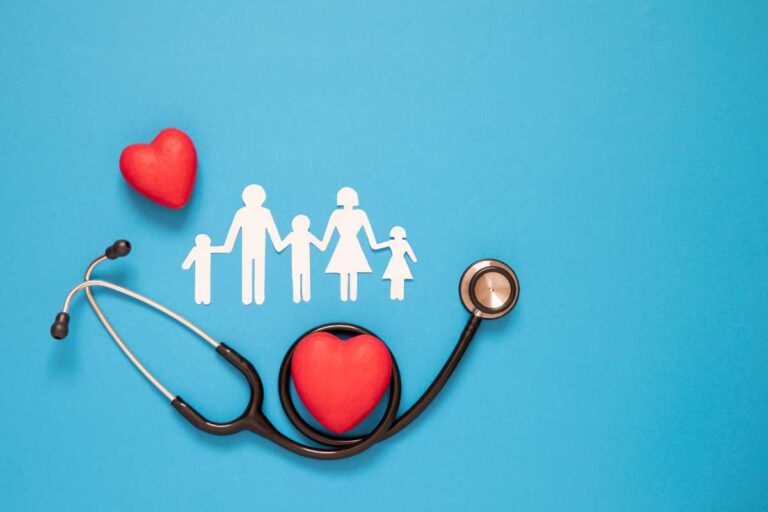What is the Guiding Principle of Islamic Medical Ethics? Bridging the Gap!
What is the Guiding Principle of Islamic Medical Ethics? Bridging the Gap!

Islamic medical ethics, a branch of bioethics, is rooted in the ethical principles and guidelines derived from Islamic teachings. It encompasses the moral values and obligations that healthcare professionals adhere to when providing medical care within an Islamic framework. Understanding the foundations of Islamic medical ethics is crucial for promoting ethical healthcare practices in Muslim-majority countries.
By integrating religious beliefs with modern medicine, Islamic medical ethics ensures that healthcare decisions align with Islamic principles such as compassion, justice, and respect for human dignity. This guiding principle emphasizes the sanctity of life, confidentiality, informed consent, and equitable access to healthcare. It also provides guidance on issues like organ transplantation, end-of-life care, reproductive technologies, and genetic testing.
We will delve into how these principles shape decision-making processes and influence patient care within an Islamic context.
“Explore our latest articles on Prophetic Medicine to discover simple, natural remedies that can improve your health. Check them out now and start feeling better!“
Principles of Islamic Medical Ethics
The guiding principles of Islamic medical ethics revolve around preserving life, preventing harm, promoting well-being, and upholding justice. These principles form the foundation for ethical conduct in medical practice within the Islamic faith.
Preserving Life
One of the fundamental tenets of Islamic medical ethics is the sanctity of life. Muslims believe that life is a precious gift from Allah and should be protected and preserved at all costs. This principle emphasizes the importance of valuing and safeguarding human life, regardless of its stage or condition. It guides healthcare professionals to prioritize interventions that promote life and healing.
Preventing Harm
Another key principle in Islamic medical ethics is the prevention of harm. This principle encourages healthcare providers to avoid actions that may cause unnecessary pain, suffering, or injury to patients. It requires them to assess the potential risks and benefits associated with any medical intervention carefully. The concept of “do no harm” aligns with this principle, emphasizing the importance of minimizing harm while providing necessary care.
Promoting Well-being
Promoting well-being is an essential aspect of Islamic medical ethics. It encompasses not only physical health but also mental, emotional, and spiritual well-being. Healthcare providers are encouraged to consider holistic approaches to patient care that address all aspects of their well-being. This includes providing support for psychological distress, offering spiritual guidance when requested by patients or their families, and ensuring access to necessary resources for overall well-being.
Upholding Justice
Justice plays a crucial role in Islamic medical ethics as it relates to fair treatment and equitable distribution of healthcare resources. Healthcare decisions should be made impartially, taking into account factors such as need, urgency, available resources, and societal considerations. This principle ensures that healthcare services are provided fairly without discrimination or bias based on race, religion, gender, or socioeconomic status.
In applying these guiding principles in practice, healthcare professionals must carefully consider each patient’s unique circumstances and cultural background. They must navigate complex ethical dilemmas, such as end-of-life care decisions, organ transplantation, and reproductive technologies, while remaining true to the principles of Islamic medical ethics.
It is important to note that Islamic medical ethics also recognizes the concept of “maslahah,” which refers to public interest or societal benefit. In certain situations, healthcare decisions may need to be made considering the greater good of society while still upholding individual rights and dignity.
Islamic Code of Medical and Health Ethics
The Organization of Islamic Cooperation (OIC) has developed a comprehensive code of medical and health ethics for Muslim countries. This code serves as a guiding principle for healthcare professionals, ensuring that they adhere to ethical standards while delivering quality care to patients.
Guidelines on Patient Rights, Consent, and Confidentiality
One crucial aspect covered by the Islamic Code of Medical and Health Ethics is patient rights. The code emphasizes the importance of respecting patients’ autonomy and dignity. It recognizes that patients have the right to make informed decisions about their healthcare, including giving or withholding consent for treatment.
Confidentiality is another key consideration outlined in the code. Healthcare professionals are obligated to maintain strict confidentiality regarding patients’ personal information unless required by law or when disclosure is necessary for providing appropriate care.
End-of-Life Care and Organ Transplantation
The Islamic Code of Medical and Health Ethics also addresses end-of-life care, acknowledging that death is an inevitable part of life. It encourages healthcare providers to provide compassionate care to terminally ill patients while respecting their wishes within the boundaries set by Islamic teachings.
The code provides guidelines on organ transplantation. It emphasizes the importance of voluntary donation and prohibits organ trafficking or any form of exploitation. The principles outlined in the code ensure that organ transplantation procedures are conducted ethically and with utmost respect for human life.
Genetic Research and Ethical Boundaries
Advancements in genetic research pose unique ethical challenges, which are addressed in the Islamic Code of Medical and Health Ethics. The code underscores the importance of conducting genetic research within ethical boundaries, ensuring that it aligns with Islamic values.
It promotes responsible use of genetic information while safeguarding individual privacy rights. Moreover, it highlights the significance of obtaining informed consent from participants involved in genetic research studies.
Other Aspects Covered by the Code
In addition to patient rights, consent, confidentiality, end-of-life care, organ transplantation, and genetic research, the Islamic Code of Medical and Health Ethics covers various other aspects. These include:
- Ensuring equitable access to healthcare services for all individuals, regardless of their socioeconomic status or background.
- Encouraging healthcare professionals to continuously update their knowledge and skills through ongoing education and professional development.
- Fostering a culture of compassion, empathy, and respect in healthcare settings.
- Promoting ethical conduct in medical research and clinical trials.
Adhering to the principles outlined in the code ensures that healthcare professionals provide compassionate care while upholding ethical standards. It enables Muslim countries to establish a framework for medical ethics that aligns with Islamic teachings.
Islam’s Perspective on the Four Principles of Medical Ethics
Islam Acknowledges the Importance of Autonomy but Emphasizes Beneficence
In Islamic medical ethics, while autonomy is recognized as an important principle, it is not given the same level of emphasis as beneficence. The concept of beneficence, which means doing good and promoting well-being, takes precedence over individual autonomy. This means that healthcare decisions should be made in a way that prioritizes the overall benefit to the patient and society as a whole.
Non-Maleficence: Preserving Life and Ensuring Patient Safety
Non-maleficence, or avoiding harm, is considered essential in Islamic teachings regarding medical ethics. Preservation of life and ensuring patient safety are paramount concerns within this framework. Healthcare professionals are obligated to take all necessary measures to prevent harm to their patients and preserve their well-being. This includes providing appropriate treatment, preventing unnecessary suffering, and upholding the sanctity of life.
Justice: Equitable Distribution of Healthcare Resources
Justice plays a significant role in Islamic medical ethics by advocating for the equitable distribution of healthcare resources among individuals based on need. It emphasizes fairness and equality in accessing medical care, regardless of social status or economic background. In Islam, it is believed that everyone has a right to receive proper healthcare services without discrimination.
The principle of justice also extends beyond resource allocation to encompass fair treatment and non-discrimination in healthcare delivery. Healthcare professionals are expected to treat all patients with equal respect and provide them with appropriate care regardless of their background or beliefs.
The Interplay Between Islamic Law and Medical Ethics
In Islamic medical ethics, Sharia law serves as the guiding principle for deriving ethical guidance. This means that decisions regarding medical practices and treatments are heavily influenced by interpretations of religious texts, scholarly opinions (fatwas), cultural norms, societal values, legal frameworks, and local customs within an Islamic context.
Adhering to religious principles while navigating contemporary medical practices can sometimes present challenges in Muslim-majority countries. The interplay between Islamic law and medical ethics requires striking a delicate balance between upholding religious beliefs and accommodating advancements in healthcare.
Sharia Law as a Primary Source
Islamic medical ethics draws extensively from Sharia law. Sharia is the moral code derived from the Quran (the holy book of Islam) and the Hadith (the sayings and actions of Prophet Muhammad). It provides a comprehensive framework for Muslims to lead righteous lives in all aspects, including healthcare.
The Quran emphasizes the sanctity of life and promotes preservation, well-being, and compassion towards oneself and others. These principles form the foundation for ethical decision-making in medicine within an Islamic context.
Influences on Ethical Decisions
Ethical decisions in Islamic medical ethics are not solely based on religious texts but also take into account various other factors. Interpretations of religious texts may vary among scholars, leading to different perspectives on specific issues. As a result, fatwas issued by respected scholars play a crucial role in providing guidance on complex medical matters.
Cultural norms, societal values, legal frameworks, and local customs also shape ethical decisions within an Islamic context. For example, certain cultural practices or traditions may influence attitudes towards end-of-life care or organ transplantation.
Balancing Religious Principles with Contemporary Medicine
Balancing adherence to religious principles with contemporary medicine poses unique challenges in Muslim-majority countries where there is often a tension between tradition and progress. Healthcare providers must navigate this delicate balance while ensuring that patients receive appropriate care that aligns with their religious beliefs.
In some cases, there may be conflicts between certain medical practices and religious teachings. For instance, issues such as contraception, abortion, assisted reproductive technologies, and end-of-life care require careful consideration within an Islamic ethical framework.
Efforts are being made to bridge the gap between Islamic ethics and modern medicine. Scholars and healthcare professionals work together to provide guidance that is both ethically sound and medically appropriate. This collaboration helps ensure that patients receive the best possible care while respecting their religious values.
Sources of Guidance for Islamic Medical Ethics
Islamic medical ethics are grounded in the teachings of Islam, which provide guidance on how Muslims should approach healthcare. The Quran, the holy book of Islam, serves as a primary source for these ethical principles. Hadiths, which are sayings and actions of Prophet Muhammad, offer specific guidance on medical issues. Islamic scholars and jurists also play a crucial role in interpreting religious texts and providing guidance on complex medical ethical dilemmas.
The Quran’s Role in Guiding Medical Ethics
The Quran is considered the ultimate source of guidance for Muslims in all aspects of life, including healthcare. While it does not explicitly address every medical issue that may arise today, it provides general ethical principles that guide Muslims’ behavior towards health and well-being. For example, the Quran emphasizes the sanctity of life and encourages believers to seek healing through prayer and medical treatment.
Hadiths: Specific Guidance on Medical Issues
Hadiths provide further insight into Islamic medical ethics by offering specific guidance on various aspects of healthcare. These sayings and actions of Prophet Muhammad shed light on topics such as treatment methods, patient consent, confidentiality, and patient rights. For instance, there are hadiths that emphasize the importance of seeking proper medical treatment when ill and encourage Muslims to consult qualified physicians.
Role of Islamic Scholars and Jurists
Islamic scholars and jurists play a vital role in interpreting religious texts to address contemporary medical ethical dilemmas. They study the Quran and Hadiths extensively to derive rulings (fatwas) that guide Muslims’ conduct in specific situations related to healthcare. These scholars possess deep knowledge of Islamic jurisprudence (fiqh) and apply their expertise to navigate complex moral issues faced by individuals within the Muslim community.
When faced with challenging questions regarding medical ethics, Muslims often turn to these scholars for advice based on their understanding of Islamic principles. This consultation process helps individuals make informed decisions that align with their religious beliefs and values. It is important to note that interpretations may vary among scholars, leading to different perspectives on certain issues.
Exploring the Guiding Principles in Islamic Medical Ethics
Respect for autonomy is a fundamental principle in Islamic medical ethics. However, it is balanced with the concept of communal well-being. In other words, while individuals have the right to make decisions about their own healthcare, these choices should not harm or negatively impact the wider community.
The principle of proportionality plays a crucial role in guiding decision-making regarding treatment options in Islamic medical ethics. This principle involves carefully weighing the expected benefits and potential harms of a particular course of action. Healthcare providers must evaluate whether the benefits outweigh the risks and if the treatment aligns with Islamic values and principles.
Compassion and empathy are highly emphasized in Islamic medical ethics. These principles ensure that patients receive holistic care that addresses their physical, emotional, and spiritual needs. Healthcare providers are encouraged to show kindness, understanding, and support to patients throughout their healthcare journey.
One aspect of respect for autonomy within Islamic medical ethics is informed consent. Patients have the right to be fully informed about their condition, treatment options, potential risks, and expected outcomes before making any decisions regarding their healthcare. This allows them to actively participate in decision-making processes and exercise their autonomy.
Islamic medical ethics also emphasizes the importance of confidentiality between healthcare providers and patients. Confidentiality ensures that patients feel safe sharing sensitive information without fear of judgment or disclosure to others. This trust between patient and provider fosters an environment where open communication can occur.
Another guiding principle is justice in resource allocation within healthcare systems. Islam promotes fairness. Healthcare providers strive to allocate resources based on need rather than personal biases or preferences.
In addition to these principles, Islamic medical ethics encourages continuous education for healthcare providers to stay updated with advancements in medicine while adhering to ethical guidelines rooted in Islamic teachings.
To summarize:
- Respect for autonomy is balanced with communal well-being.
- The principle of proportionality guides decision-making regarding treatment options.
- Compassion and empathy ensure holistic care for patients.
- Informed consent and confidentiality are essential aspects of respect for autonomy.
- Justice in resource allocation promotes fairness within healthcare systems.
By adhering to these guiding principles, Islamic medical ethics aims to provide ethical and compassionate care that aligns with Islamic values and principles.
Embracing Islamic Medical Ethics
We discussed the principles themselves, such as beneficence, non-maleficence, autonomy, and justice. We examined the Islamic Code of Medical and Health Ethics and how it provides a framework for ethical decision-making in medical practice from an Islamic perspective.
We also delved into Islam’s perspective on the four principles of medical ethics: respect for autonomy, beneficence, non-maleficence, and justice. We explored how these principles align with Islamic teachings and values. Furthermore, we discussed the interplay between Islamic law and medical ethics, highlighting how religious beliefs can shape ethical considerations in healthcare.
To ensure that healthcare professionals adhere to these guiding principles, various sources of guidance were identified. These include the Quran (the holy book of Islam), Hadith (sayings and actions of Prophet Muhammad), scholarly opinions from respected scholars or jurists (Ijtihad), as well as consensus among Muslim scholars (Ijma).
In conclusion, embracing Islamic medical ethics is crucial for providing culturally sensitive care to Muslim patients while upholding ethical standards in healthcare practice. It requires a deep understanding of the principles outlined by Islam and their application in clinical settings. By adhering to these guiding principles, healthcare professionals can ensure equitable care that respects patient autonomy while promoting overall well-being.
FAQs
What role does religion play in shaping Islamic medical ethics?
Religion plays a central role in shaping Islamic medical ethics. The principles derived from Islam guide ethical decision-making within healthcare practice. These principles are rooted in religious teachings found in the Quran and Hadiths. They provide a moral compass for healthcare professionals to navigate complex situations while upholding their faith-based values.
How do Islamic teachings influence end-of-life decisions?
Islamic teachings emphasize the preservation of life but also acknowledge the inevitability of death. In end-of-life decisions, Islamic medical ethics prioritize the alleviation of suffering while respecting the sanctity of life. Muslim patients may seek comfort in knowing that their treatment aligns with their religious beliefs and that healthcare professionals respect their autonomy.
Are there any unique considerations for female patients in Islamic medical ethics?
Islamic medical ethics consider gender-specific needs and preferences. Modesty is highly valued in Islam, so healthcare professionals should provide female patients with privacy during examinations and procedures. Female patients may prefer to have a female healthcare provider present during consultations or treatments.
How does Islamic medical ethics address issues related to organ transplantation?
Islamic medical ethics generally support organ transplantation as a means to save lives and alleviate suffering. However, it is important to obtain informed consent from donors or their families and ensure fairness in organ allocation. Some scholars have provided guidelines regarding specific conditions for organ transplantation within an Islamic framework.
What resources are available for healthcare professionals seeking guidance on Islamic medical ethics?
Healthcare professionals can consult reputable organizations specializing in Islamic bioethics, such as the International Association of Bioethics (IAB) IslamBioethics Project or local institutions offering courses on Islamic medical ethics. Engaging with Muslim scholars or chaplains knowledgeable in this field can also provide valuable insights and guidance.







